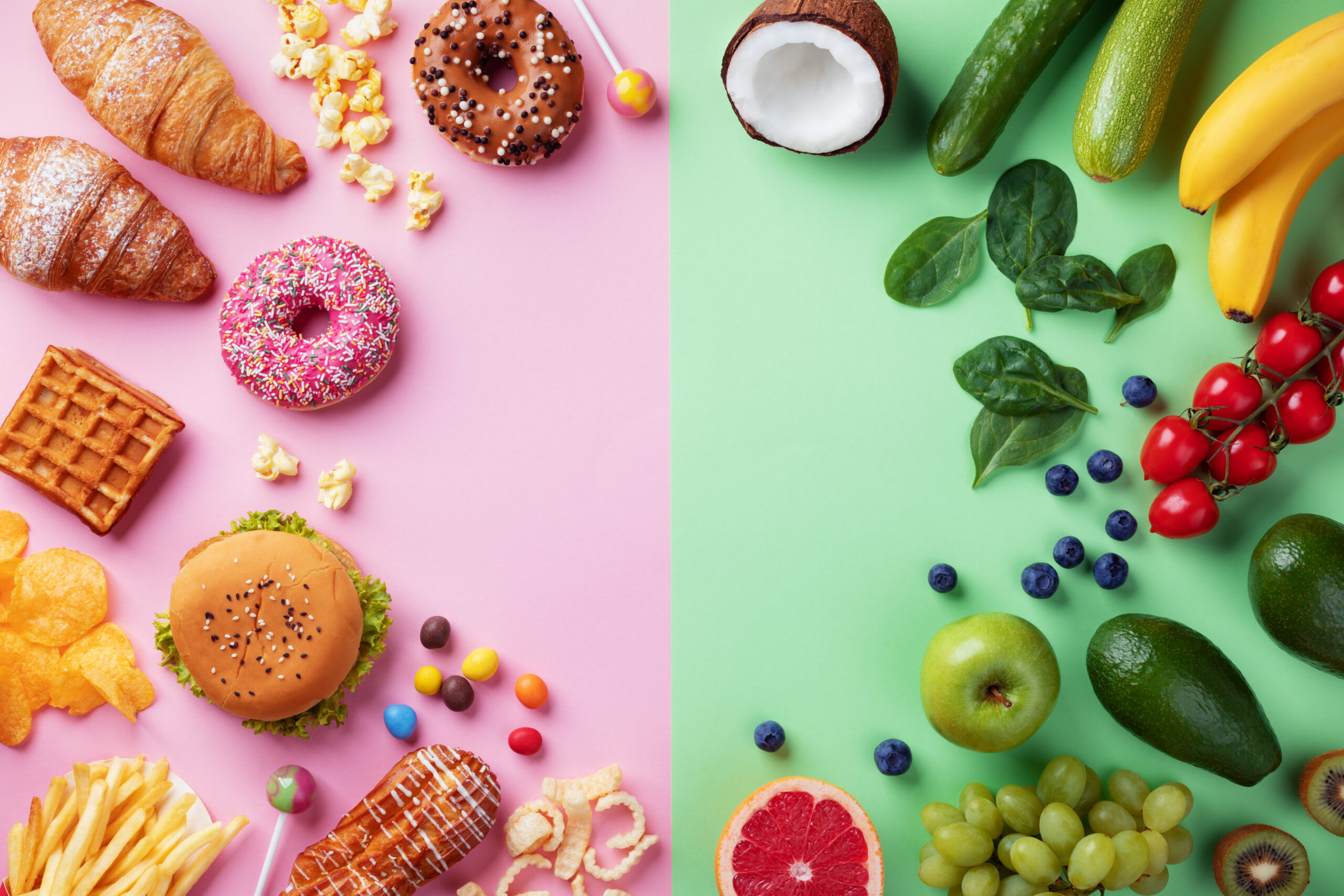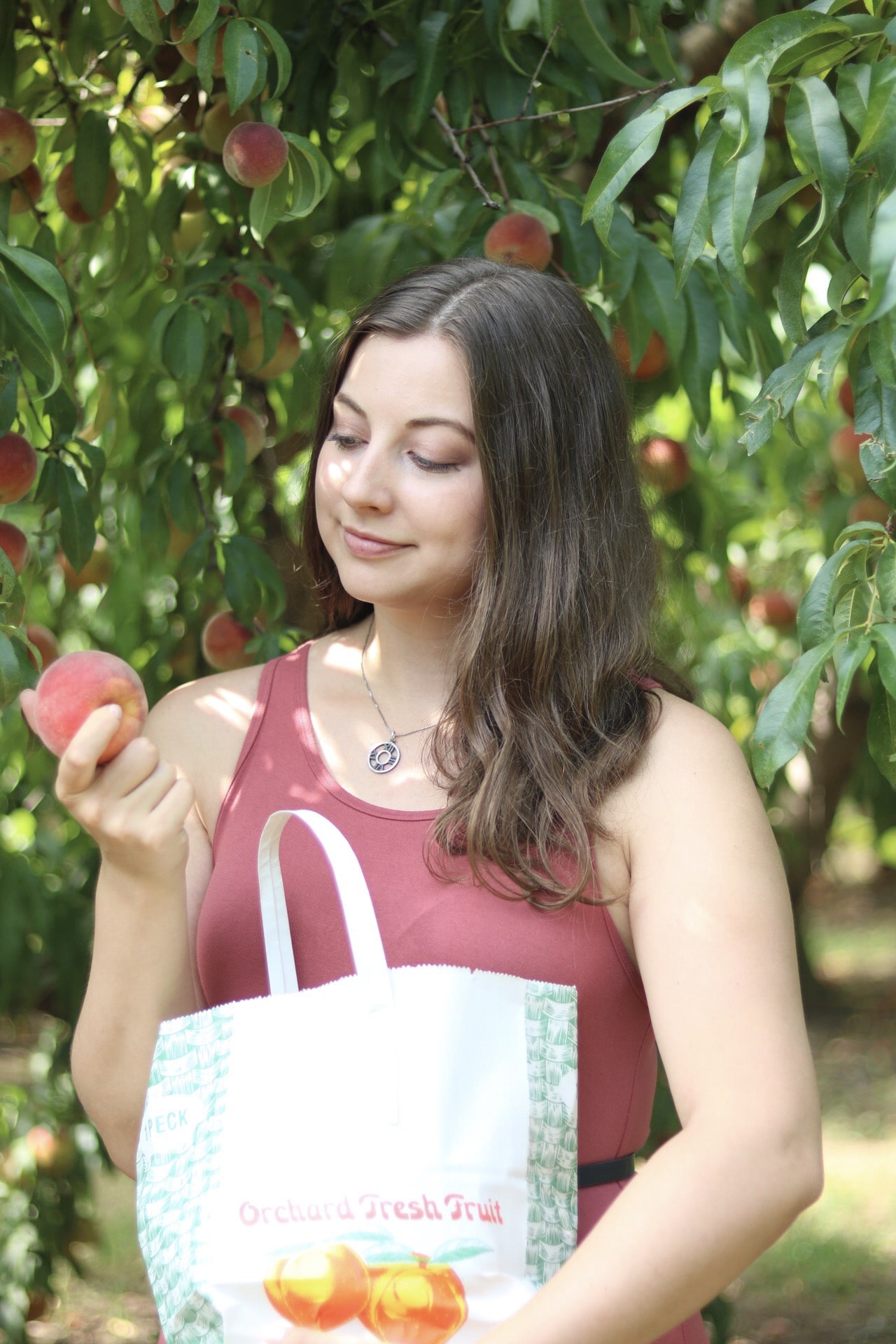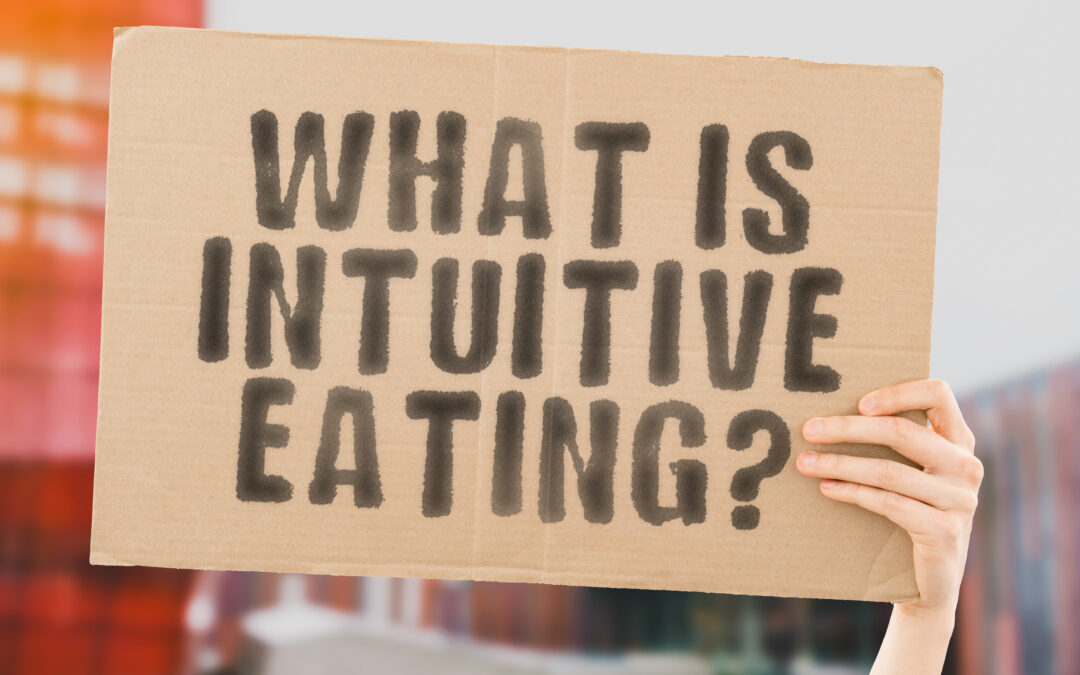We hear it from friends, parents, and let’s not even mention how much contradictory information is on social media. “Eat this,” or “avoid that!” In today’s diet-obsessed world, it’s easy to get caught up in the idea that some foods are “good” while others are “bad.” People want to know what foods are good to eat? You might be surprised to know that the team of nutrition experts at Confidently Nourished doesn’t label or judge food in this way.
This black-and-white thinking can harm our relationship with food, making us feel guilty or ashamed for eating certain things. Overtime, we may internalize this – thinking we ourselves are “good” or “bad” for simply eating or enjoying food. It often leads to a cycle of restriction and binging, increased stress around food, and a distorted view of what healthy eating truly means.
We want to share why no foods are categorically “good” or “bad,” and how embracing intuitive eating can transform this mindset, improve physical health, and enhance your relationship with food.
We’ll Cover

Reflecting on Your Personal Food Journey
When you find yourself asking the question, “what foods are good to eat?” you might find that you are seeking more than just nutrition advice. This question might be neutral, but it often reflects something deeper. Exploring your intentions can be an important experience, one that goes beyond simply knowing what’s on your plate.
Why do you want to know which foods are “good” to eat? Is it to improve your health or change your body? Perhaps to enjoy food without guilt? Understanding your motivations can help you approach food with curiosity rather than fear. Reflect on these questions:
- What are you hoping to achieve by changing your eating habits?
- How do you currently feel about the foods you eat?
- What emotions come up when you think about making different food choices?
Understanding and Applying Intuitive Eating
Maybe you can remember how you ate before diet culture and food rules existed. Intuitive eating is a philosophy that brings us back to that place. This set of 10 principles promotes a healthy relationship with food by encouraging you to trust your body’s signals and make peace with food. Two of those key principles of intuitive eating are particularly relevant here:
Making Peace with Food: This principle is about giving yourself unconditional permission to eat. When you stop categorizing foods as good or bad, you can begin to enjoy food without guilt and truly listen to what your body needs.
Challenging the Food Police: The “food police” are the voices in your head (or from external sources) that tell you certain foods are bad and should be avoided. Challenging these thoughts helps to silence the guilt and shame associated with eating certain foods and promotes a healthier, more balanced relationship with food.

Tips to Challenge the Food Police and Build Trust
Rebuilding trust with your body is essential to developing a healthy relationship with food. Trust allows you to respond to your cravings and your hunger and fullness cues. Here are a few ways to build this trust:
- Challenge and Reframe Negative Thoughts: When you catch yourself caught in this pattern of thinking, ask yourself where that belief came from, if it’s truly valid, and if it’s useful to you. Replace negative thoughts with more neutral ones, such as “All foods have a place in my diet.”
- Listen to Your Body: Pay attention to how different foods make you feel. Notice how your body responds to various foods without judgment. Over time, you’ll learn which foods make you feel energized and satisfied. All while figuring out which foods are good to eat for you and your body.
- Remove Restrictions: Allow yourself to eat a variety of foods without imposing strict rules. By doing so, you reduce the likelihood of overindulging and increase your satisfaction with your meals.
- Educate Yourself: Learn about the nutritional value of different foods without placing them on a moral pedestal. Understanding that all foods can provide some form of nourishment can help you make more informed choices.
- Practice Self-Compassion: When you find yourself labeling foods as good or bad, remind yourself that all foods can fit into a balanced diet. Be kind to yourself and recognize that no single food choice defines you or your health.

Final Thoughts
No food is categorically “good” or “bad.” Embracing intuitive eating and challenging the food police can lead to a healthier mindset, improved physical health, and a better relationship with food. At Confidently Nourished, our dietitians are here to support you in this journey and help you figure out what foods are good to eat for you, an individualized all-foods fit approach.
If you’re ready to make peace with food and trust your body’s intuition, contact us today to schedule a session. Let’s work together to help you find joy and nourishment in your eating habits.






0 Comments